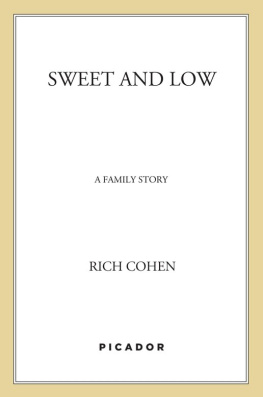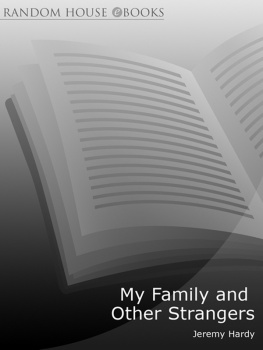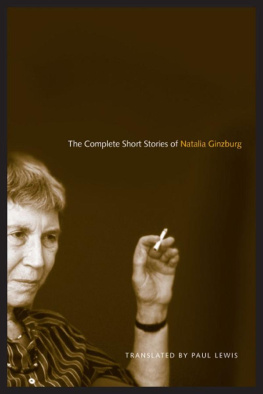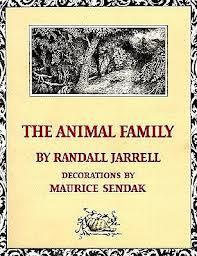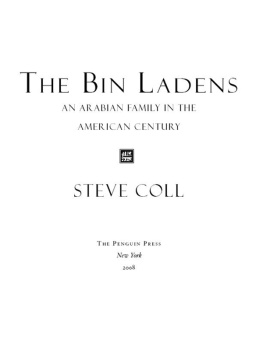FAMILY LEXICON
NATALIA GINZBURG
Translated from the Italian by
JENNY McPHEE
Afterword by
PEG BOYERS
NEW YORK REVIEW BOOKS

New York
NATALIA GINZBURG (19161991) was born Natalia Levi in Palermo, Sicily, the daughter of a Jewish biologist father and a Catholic mother. She grew up in Turin, in a household that was a salon for antifascist activists, intellectuals, and artists, and published her first short stories at the age of eighteen; she would go on to become one of the most important and widely taught writers in Italy, taking up the themes of oppression, family, and social change. In 1938, she married Leone Ginzburg, a prominent Turinese writer, activist, and editor. In 1940, the fascist government exiled the Ginzburgs and their three children to a remote village in Abruzzo. After the fall of Mussolini, Leone fled to Rome, where he was arrested by Nazi authorities and tortured to death. Natalia married Gabriele Baldini, an English professor, in 1950, and spent the next three decades in Rome, London, and Turin, writing dozens of novels, plays, and essays. Lessico famigliare (Family Lexicon) won her the prestigious Strega Prize in 1963 and La famiglia Manzoni was awarded the 1984 Bagutta Prize. From 1983 to 1987, she served in the Italian parliament as an Independent (having left the Communist Party), where she dedicated herself to reformist causes, including food prices and Palestinian rights.
JENNY McPHEE is a translator and the author of the novels The Center of Things, No Ordinary Matter, and A Man of No Moon. She is the director of the Center of Applied Liberal Arts at New York University and lives in New York.
PEG BOYERS teaches poetry and translation at Skidmore College and at the Columbia University School of the Arts. She is the executive editor of Salmagundi Magazine and the author of three books of poetry published by the University of Chicago Press. One of those books, Hard Bread, is based on the life of Natalia Ginzburg.
CONTENTS
AFTERWORD
L EXICON : a dictionary, or, more precisely, an assemblage of words meaningful only to initiates, or a collection of phrases, any one of which, when uttered, no matter when or where, will at once identify the speaker as a member of a particular tribe. If my siblings and I were to find ourselves in a dark cave or among millions of people, writes Natalia Ginzburg in Family Lexicon, just one of those phrases or words would immediately allow us to recognize each other. Those phrases are our Latin, the dictionary of our past, theyre like Egyptian or Assyro-Babylonian hieroglyphics, evidence of a vital core that has ceased to exist but that lives on in its texts, saved from the fury of waters, the corrosion of time. Most of us have such phrases or their equivalents in our repertoire and understand the virtues and satisfactions of membership codes and passwords that confirm belonging, summon the flavor of a shared world.
Ginzburg was born in 1916 in Palermo, but her childhood and early adulthood were spent in the northern industrial city of Turin where her father was a medical researcher and university professor. Her father, Giuseppe Levi, was Jewish; her mother, Lidia Tanzi, was Catholic; but neither parent was religious and the household was fiercely nonsectarian. If there was a religion practiced it was antifascism. There was no deity worshipped and the only form of prayer practiced was laughter; indeed, the rich and reliably laughter- inducing compendium of stories and sayings that make up Family Lexicon can be said to comprise a kind of prayer missile or psalter for practical, spirit-renewing use.
Ginzburg began work on Family Lexicon while living in London with her second husband, Gabriele Baldini, in the early 1960s. The book was published in 1963 and awarded the coveted Strega Prize for fiction, though it reads like a memoir and is entirely based on facts. At the time Ginzburg was in her mid-forties and already well-known as the author of five novels, in addition to stories, essays, and plays. It was not until she was living in England, in a city she disliked, among people she regarded as cold and lacking in joie de vivre, that she was moved to write intimately about Italy and her family.
In London, where Baldini was busy with his diplomatic post, Ginzburg spent most of her time at home taking care of her three children from an earlier marriage. She felt isolated and unhappy, and she missed Italy. In an interview in 1990 she told me that she had felt somewhat at sea living among Brits and that when she began writing Family Lexicon she was greatly relieved to be writing as a Torinese. And so it was during this moment of intense longing that Ginzburg set out to write the story of her Torinese childhood and of the years leading into and through World War II, finding in the remembered anecdotes and phrases that constituted her family lexicon the Italian companionship she craved. Though the avowed motive informing the work is by no means therapeutic, its very composition helped Ginzburg get through a difficult period. And in the stories themselves, the alternation of light and dark, terror and relief that characterizes them, there is a discernible will to confront everything, past and present, no matter how horrific or disheartening, and to make from each encounter some modest affirmation of life.
Si tira avanti is the ready answer Italians often give when greeted by the standard Come stai? (How are you?) Not Very well, thank you, but rather One pulls oneself forward. We will not lie and say, Bene, benissimo, grazie, they seem to say with a steady, bemused irony, We pull ourselves forward, butsi capiscewith difficulty. To pull herself forward in monochromatic London, Ginzburg conjured for herself the colorful details of her family history, rich in pleasure as well as in pain. Not for her the programmatic hopelessness that often characterizes narratives set in fascist Italy, in well-known films like Rome, Open City; The Conformist; or The Garden of the Finzi-Continis. Ginzburgs project is not to whitewash the varieties of tragic loss suffered by Italians and others of her generation. Her focus, rather, is the mundane interior landscape of a household, the daily experience of living in the haven of family life even as death prevails outside and catastrophes follow catastrophes on every front.
In the mid-1930s, we learn, Natalias older brother, Mario, escapes arrest for distributing antifascist propaganda and flees to Switzerland. As a consequence, her father, known as Beppino, is deemed guilty by association with a subversive and jailed. Somehow, though everyone in the Levi household is preoccupied and fearful, comedy prevails: Natalina, the maid, continues to get her pronouns mixed up, referring to all feminine objects and persons as he, while Lidia, the mother, continues to break involuntarily into song at the top of her lungs, with lyrics like these, which she composed in high school:
I am Don Carlos Tadrid
And Im a student in Madrid!
Each week the same Lidia, undaunted, carries fresh clothes to Beppino in prison and worries about having enough money to pay the bills. These people have reason to be afraid of what will soon befall them, and yet they remain open to mischief and absurdity, even to unexpected good fortune. Improbably, Beppino is released from prison, and though brother Mario has had to flee, he is alive, and the family can return for a time to what Beppino is always declaring to be their boring lives. While it is hard, in the era of Italian fascism, quite to believe in the good simplicity of normal life, Ginzburgs family can feel that things are, well, not so bad. Beppino openly mocks the fascists at his university and seems not to imagine what dangers his habitual antiestablishment demeanor might bring upon his family. The Levi family, for all its political savvy and sophistication, cannot conceive of what will come by wars end. Fascism, they are certain, cannot and will not last. Nor can the war. Or so they are assured by their informants and by those who speak in the name of reason and the reasonable. They

